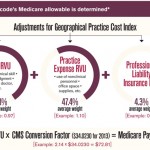The roundtable included discussions on emerging issues in state advocacy, prior authorization reform, likely impacts of the Big Beautiful Bill and physician wellness.


The roundtable included discussions on emerging issues in state advocacy, prior authorization reform, likely impacts of the Big Beautiful Bill and physician wellness.
CMS estimates that under their proposal, released July 29, rheumatologists would see on average a 15% payment increase, beginning in 2021.

The ACR has partnered with the American Medical Association (AMA) and over a dozen stakeholder groups to create a set of 21 principles to reform prior authorization protocols. This coalition represents hospitals, medical groups, patients, pharmacists and physicians with a unified goal of creating a more patient-centered, streamlined and transparent process for prior authorization. According…

Sharad Lakhanpal, MBBS, MD |
There is a saying that if the American Medical Association (AMA) did not exist, we would have to invent it. That is just what Dr. Nathan S. Davis did back in 1845 when he called for a national medical convention and laid the foundation for the establishment of the AMA in 1847. This new group would…
This year’s interim meeting of the American Medical Association (AMA) House of Delegates (HOD) took place Nov. 12–15, just days after the national election that, in 2017, will usher in a GOP-led Congress and presidential administration. “It was a highly interesting meeting,” says Gary Bryant, MD, FACP, associate professor of medicine and rheumatology at the University…
The ACR is searching for practicing physicians interested in coding and reimbursement issues to represent the ACR on the AMA/Specialty Society Relative Value Scale Update Committee (RUC) and Current Procedural Terminology (CPT) Committee. The RUC and CPT Committee comprise physicians representing the national medical specialty societies who advise the CPT Editorial Panel on matters concerning…

The American Medical Association consists of two key groups: 1) the Relative Value Scale Update Committee (RUC), which oversees the annual updates to the physician work relative values, and 2) the Current Procedural Terminology (CPT) Editorial Panel, which assigns new or revised codes in the CPT book. The CPT Process Current Procedural Terminology (CPT) was…

John A. Goldman, MD |
I tell my patients there are three types of science: 1) investigative science, which sometimes gets it right; 2) science in the courtroom, which is junk science; and 3) science in Washington, D.C., which is political science. Our decisions are based on art and science; our patients’ medications are brought to market based on science….

Gary Bryant, MD |
Editor’s note: Welcome to the first installment of Experiences in Advocacy, a special series authored by ACR members detailing personal experiences in advocacy. We need rheumatologists to join the American Medical Association (AMA). Here’s why, and how to do it. Having participated in your delegation for over a decade, I have seen major improvements in…
Staff |
The ACR needs a total of 1,000 AMA members to retain our seat in the American Medical Association Federation. Become a member of the AMA today to ensure that rheumatology retains a stake in policy and reimbursement discussions.